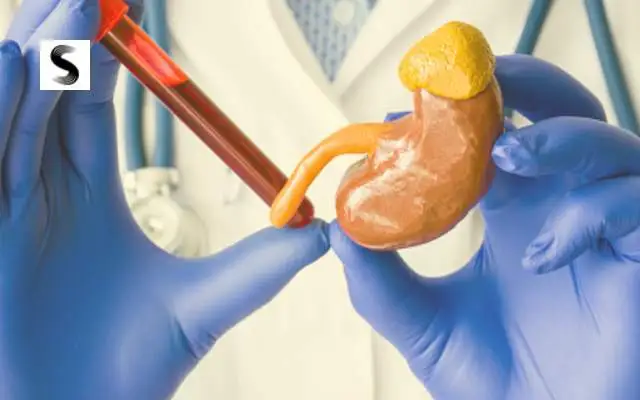High creatinine and low GFR levels can be a cause of concern regarding kidney health. If you are looking for ways to improve your overall kidney health, then understanding how to raise GFR and lower creatinine is critical. Kidney health is essential for maintaining the balance of important bodily functions, so taking the necessary steps to increase your GFR and reduce the amount of creatinine in your body is essential.
The Basics
Raising your glomerular filtration rate (GFR) and lowering your creatinine can be essential to keeping your body healthy. Creatinine is a waste product produced by the breakdown of muscle in the body, and it can build up to dangerous levels if not managed properly. Knowing how to raise GFR and lower creatinine can help you maintain optimal health and wellness.
Causes of High Creatinine
There are several potential causes of high creatinine levels, including dehydration, certain types of infection, and even some medications. The most common cause is kidney damage due to diabetes, high blood pressure, or other diseases that affect the kidneys. To reduce creatinine levels and raise GFR (glomerular filtration rate), it is essential to treat any underlying conditions, such as diabetes or hypertension, with lifestyle modifications and medications as prescribed by your doctor.
How to raise GFR and lower creatinine?
There are several ways to raise Glomerular Filtration Rate (GFR) and lower creatinine levels:
- Adopt a healthy lifestyle: Maintaining a healthy weight, eating a balanced diet, exercising regularly, and avoiding harmful substances like tobacco and excessive alcohol can help improve kidney function and raise GFR.
- Treat underlying conditions: Chronic diseases like diabetes and high blood pressure can damage the kidneys over time, leading to decreased GFR and increased creatinine levels. Treating these conditions effectively can help preserve kidney function.
- Take medication: Some medications, like angiotensin-converting enzyme (ACE) inhibitors or angiotensin receptor blockers (ARBs), can help lower creatinine levels and protect the kidneys.
- Avoid certain medications: Some can be toxic to the kidneys and contribute to decreased GFR and increased creatinine levels. Always talk to your doctor before starting a new medication, and never stop taking a medication without first talking to your doctor.
- Limit fluid intake: Drinking excessive amounts of fluids can increase creatinine levels and put a strain on the kidneys. Drinking an appropriate amount of fluid can help lower creatinine levels and improve kidney function.
It’s important to note that these methods may only work for some, and the best approach for each individual may vary based on their specific health status and other factors. Consult a healthcare professional for a personalized treatment plan.
Diet Modifications
Keeping the GFR high and the creatinine levels low is essential for proper functioning kidneys. Fortunately, making a few simple diet modifications can help achieve this goal.
First, it’s essential to increase the intake of foods rich in antioxidants, such as fruits and vegetables, nuts, and seeds. These will help reduce inflammation throughout the body, including in the kidneys, which in turn helps keep GFR levels up while lowering creatinine readings. A diet low in processed carbohydrates will also be beneficial since these can cause inflammation which harms kidney function over time. Eating plenty of lean proteins should also be considered; these provide energy without undue strain on the kidneys.
Natural Remedies
The first step to raising GFR and lowering creatinine is to make dietary changes. Foods that contain high amounts of protein, such as red meat, should be avoided as they can increase creatinine levels. Eating foods with high fiber content, such as fruits and vegetables, can help reduce creatinine levels in the body. Drinking plenty of water throughout the day helps flush out toxins from the body, reducing the amount of creatinine in the bloodstream.
Exercise Habits
Regular physical activity can reduce the risk of chronic diseases, such as cardiovascular disease and diabetes, which can severely impact kidney function.
For those with existing renal issues, adding an exercise routine may help raise GFR levels and lower creatinine concentrations in the blood. A moderate-intensity aerobic workout is recommended for 30 minutes at least 3-4 times a week. However, speaking with your doctor before starting any new exercise plan is essential, as some activities may be too strenuous for those with advanced renal conditions.
Medical Treatment Options
First, it’s essential to identify and treat any underlying medical conditions causing the elevations in GFR and creatinine levels. Conditions such as diabetes or hypertension can increase blood pressure in the kidneys, leading to decreased function and higher concentrations of creatinine in the bloodstream. Treating these conditions is critical to bringing down GFR and creatinine levels.
In addition to addressing underlying causes, medications can also improve kidney health and reduce high GFR and creatinine levels.
Conclusion
Raising GFR and lowering creatinine is possible with lifestyle modifications such as exercising regularly, maintaining a healthy weight, eating a balanced diet, limiting sodium intake, and drinking plenty of fluids. Avoiding medications that can cause kidney damage and consulting your physician if any symptoms of kidney disease are present are also recommended.
FAQs
What foods increase GFR?
Foods that are particularly beneficial for increasing GFR include fruits and vegetables high in antioxidants and fiber, such as blueberries, kale, apples, and broccoli. These foods can help reduce inflammation in the body and improve kidney function. Additionally, omega-3 fatty acids in fatty fish like salmon, tuna, and mackerel can also benefit kidney health. Drinking plenty of water throughout the day is essential to stay hydrated and flush out toxins from the body.
How does creatinine affect GFR?
Creatinine levels in the blood affect GFR (Glomerular Filtration Rate), as high levels indicate decreased kidney function and low GFR. In contrast, low levels indicate normal or increased kidney function and high GFR.
